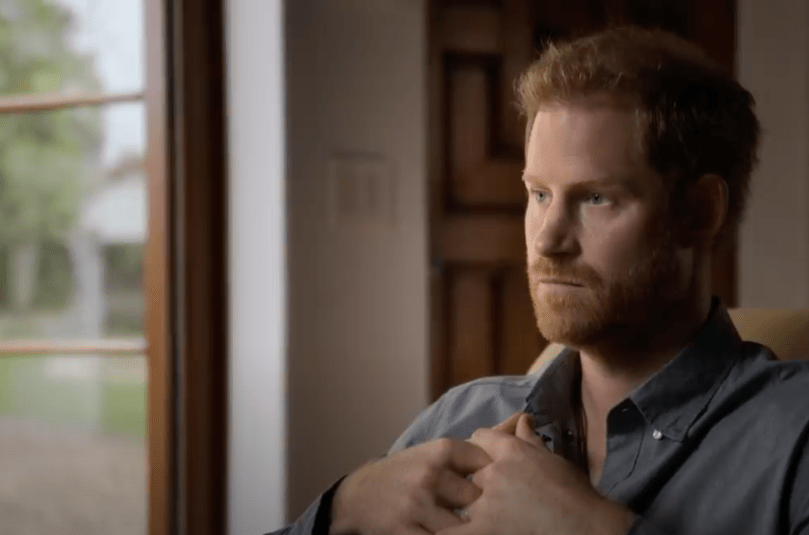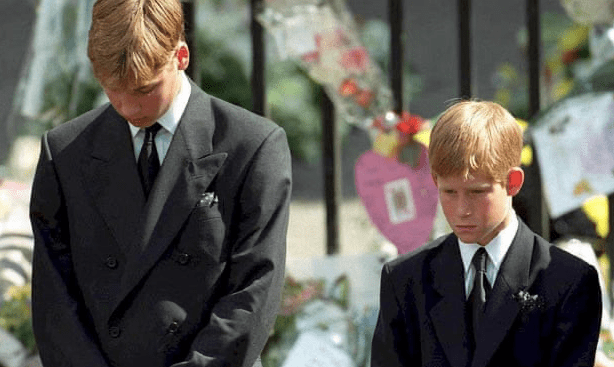I know many people are finding plenty of reasons to slate Prince Harry at the moment: for his open criticism of his upbringing; for hypocrisy in privacy vs. publicity matters; for his ‘therapy speak’.
I also know there is fierce resistance to what he is saying. After all, it flies in the faces of stiff-upper-lip Britishness and the Royal Family’s ‘play-the-game’ rules.
How about we put all judgment aside for a moment, and simply listen to – and hear – what he is trying to do. Because doesn’t it then become clear that he is trying to talk about some of the most important things that can affect us all? Things that haven’t been talked about nearly enough.
Unresolved trauma.
Silence.
And mental health.
No-one can accuse him of not knowing each of them intimately.
According to the leading charity, MIND, mental health issues went up by 20% between 1993 and 2014. Imagine the rate at which they are rising now, especially among the young. You just have to witness, as I recently have, a desperate twenty-something year old trying to access mental health provision in this country in order to see how woefully inadequate it is. And how much needs to be done.

There is nothing new or wrong in recognising the potentially huge role parents and primary carers play in forming or, in some cases unfortunately, de-forming a child’s mental health. It’s not an attack; or blame. It’s just fact. So personally, I welcome Harry’s efforts to get us all talking about these things. And I can only recognise logic, truth and sense when he says:
“There is no blame. I don’t think we should be pointing the finger or blaming anybody, but certainly when it comes to parenting, if I’ve experienced some form of pain or suffering because of the pain or suffering that perhaps my father or my parents had suffered, I’m going to make sure I break that cycle so that I don’t pass it on, basically.“
Or:
“It’s a lot of genetic pain and suffering that gets passed on anyway so we as parents should be doing the most we can to try and say: ‘You know what, that happened to me, I’m going to make sure that doesn’t happen to you.’”
People have been asking what ‘genetic pain’ is. I know the scientific fact-checkers at TED would have a lot to say about his use of the word ‘genetic’ in that context – they did about my single mention of it in my TEDx talk, which wasn’t even about genetic inheritance! He possibly means ‘generational’ pain, but, as I mentioned in last month’s blog, science often lags behind lived experience and the insights of other disciplines, so maybe his – and my – experiences will one day be proved to be genetically true as well.

I actually think that if more parents or grandparents learnt to ‘therapy speak’ about the hurt or trauma in their childhoods and lives, many destructive cycles would be broken. Of course it isn’t comfortable at the time. And yes, it can be extremely upsetting, especially if criticism of family members is voiced on a global platform. But feeling a need to talk openly and publicly is often a direct result of having been silenced. And the impact of silence on traumatic experiences is potentially devastating. It pushes raw, unprocessed emotions deeper into the psyche where, unexpressed, they fester like bandaged wounds deprived of the air that will heal them. And then the problems start.
After over two decades of silence… of being silenced… Harry is now giving his wounds some ‘air-time’. And I hope the world will allow him to stumble and cock up royally (…sorry!) from time to time while he does his best to break new ground – just like his mother tried to do – and raise awareness of the insidious killer in our midst.
And what can we do to help the situation?
Maybe the first step is to start talking. And listening. Talking about things that have mattered… with your children and your grandchildren. With your parents and grandparents. With your wife, husband, friends. Because while silence may help you cope with something, it may not help those who come after.
So, talk about it… before it becomes too late.
LINKS (as usual, a variety of viewpoints – some definitely not my opinion)
I talk about the impact of silence and lack of understanding surrounding intergenerational trauma in my TEDx talk – Facing the past to liberate the present
Prince Harry appears to criticise way he was raised by his father – The Guardian
Prince Harry’s ‘Genetic Pain’ Comments Are Not Actually A Dig At Prince Charles – GRAZIA
Prince Harry: I want to break cycle of pain for my children – BBC NEWS
Prince Harry says trauma of Diana’s death led him to use alcohol and drugs – The Guardian
What is genetic pain and can you inherit parental trauma? – The Telegraph
Meghan, Diana, drugs and therapy: what Harry said in Apple TV series – The Guardian


I Think Prince Harry needs to have a session with Dr Drew
I don’t know Dr Drew I’m afraid…
I guess we’re talking about Dr David Drew Pinsky – the US doctor (addiction specialist) turned TV star. I’m also guessing (hoping) that Caroline meant it kindly.
“Dr Drew” is fundamentally a therapist; and we all need therapy from time to time……
Thanks David, I think you meant to refer to Rose not Caroline.. I know Caroline is always kind! .
My apologies!
Here’s a penitent poem accordingly –
Caroline is always kind
And doesn’t ever change her mind.
We know less of Rose’s creed.
But let’s assume the same of her,
With deep inside kind thoughts astir;
A Rose in name and deed!
On a more serious note, I believe that sympathisers in Scotland will find the Joshua Nolan Foundation a very worthwhile cause.
They provide a range of counselling and support for vulnerable young people, with a central focus on the reduction of suicide (frighteningly high among young people in that otherwise fine, lovable country.)
With renewed thanks to you Angela for your thoughtful awareness raising on this area,
As ever,
David
I Think Prince Harry Is on the same level as Donald Trump Jr., Eric Trump, Jared Kushner, James Murdoch, Lachlan Murdoch, Jordan Belfort, Brody Jenner, Brandon Jenner, Rob Kardashian, Armie Hammer,
Dear Angela,
Thank you so much for this (as usual) thoughtful and insightful piece.
Whatever the details of any particular case, mental health sure does need to be paid MUCH more attention.
As a fairly typical product of the immediate post-war “stiff upper lip” generation, I know that recognition of and empathy with mental health issues does not always come naturally to us all – neither in relation to ourselves nor others.
If Prince Harry’s efforts (and yours) to raise awareness help even a tiny proportion of those affected, they will have been valuable contributions.
Thank you.
Lol,
David
Thank you, as always, David. You are so right – and honest – to admit that about your generation. Sometimes what serves one generation well, doesn’t serve the next living with very different circumstances.
So brilliantly put, Angela. I hope Prince Harry reads this and gains strength from it to continue on his mission to raise awareness about these urgent issues. I totally agree with you – it must take huge courage on his part to risk destroying his relationship with close family members and indeed his whole country. I just pray that there are enough people, particularly in our generation who will listen, learn and act. I certainly am/will. Thank you, as always for your deeply compassionate insights.
Thank you Caroline.
Not so nice then, Nina Rose.
Apparent empathy, just a pose.
We all just hope that life is kind and puts no pressures on YOUR mind.
Wishing help at hand when you need it most,
Still I raise a glass and thee I toast.
He sure don’t look like MTG to me! 🙄